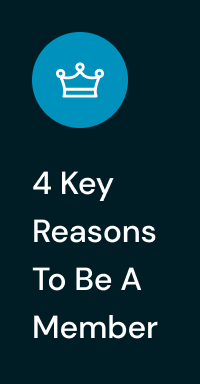
Life insurance – Yes, you need it
But we hear you say: ‘not me, I don’t’.
If you too say this, very possibly you also fail to see the obvious financial risk in front of you that life insurance can address. Even the elderly and rich need life insurance!
Insurance is a financial mechanism that fills a “black hole”, it provides money for the loss or damage arising from an uncontrolled, unexpected and unwanted life event. It is a key tool in wealth preservation and estate planning.
But again we hear you say: ‘not me, I don’t need it’.
This line of thinking fails to look past you, it fails from the archetypical perspective of estate planning built on the question; what will happen if I die?
Looked at under this prism, for many readers, personal life insurance will not be viable, their age results in life insurance being either unavailable or prohibitively costly. This is not the right way to look at your life insurance risk and needs. Good thoughtful estate planning involves planning for estate risks that not only represent you but surround you as well.
Some life risks are obvious, such as your death or that of your life-partner. And this is where you may say (again) that financially I don’t need it. Clearly you are right, but perhaps your vision is just a little limited to some of the real estate planning risks that are closer than you think.
Proper estate planning involves looking at different death scenarios and planning for the event. Commonly this will involve your death, the death of your life-partner and the death of a beneficiary under your will. If you stop at this point you need to expand your thinking and kill-off more, especially a son or daughter-in-law!
With this frame of mind, ask: what is the financial risk upon you of the death or disability of another? Will the death of a son-in-law mean that your financial wealth is threatened (even if only partially) by your need to support your daughter and grandchildren? The loss of income or exposure to debt previously supported by the son-in-law can be financially devastating to your daughter’s family. In the case of disability, if she was working, will she need to reduce her working hours to care for her husband? Will her family have enough to meet everyday living expenses?
Your wealth may be tied up in illiquid assets (such as property) or is not yet accessible (such as superannuation) or perhaps it is the wrong time to liquidate shares. Who will financially look after them, if you cannot? And if you do, what is the financial risk upon your wealth of their loss?
This is where life insurance becomes important for you, this is where you need life insurance as part of your estate plan. You need to ensure that others have the right amount of life and disability insurance to protect your wealth from their traumatic loss. Embracing this secondary level of estate planning completes the plan.
Comprehensive estate planning urges the importance of your son-in-law having proper life insurance in place to protect his family in the event of his death or disability. If their family is financially secured your wealth is protected.
Many a son or daughter-in-law will already have insurance and not know about this. Buried within the superannuation paperwork they regularly receive will be references to a death benefit. If this amount is the same as their investment balance, there is no life insurance. If it is greater, the difference is the automatic life insurance that is already in place. Now ask them the question: is this enough for you to financially secure your family (my child and grandchildren)? Often it is not.
Some son or daughters-in-law will be savvy enough to know that buried deep within their superannuation is life insurance, but is this the right type and the right amount?
The interesting thing is that through their superannuation and via their life insurance in their superannuation very often your son or daughter or in-law can get cost effective and cash flow neutral life insurance. When they create a financial disaster safety net they not only protect their family but they protect your wealth. When you organise them to be financially secure in the event of a life-calamity, you are protecting your financial future from the same risk. And even more interesting, when they do this via their superannuation they are putting their (and your) financial security into the most tax effective environment that Australia has to offer.
Properly structured, the proceeds arising from life insurance should cover debts and on-going future needs of your child and your grandchildren. This will alleviate the need for you to dip into your wealth and liquidate your assets to financially secure your child or grandchildren. In short, if your in-law is insured, your wealth is protected!
This is what we mean when we say that you need life insurance, it is just that you are not the life that is insured. As part of your estate planning, when you ensure that another within your family is insured (at their cost) you can be confident that their family’s financial security need not be financially reliant or dependent upon you!
Life insurance over the right person is important to wealth preservation and to a good estate plan.

